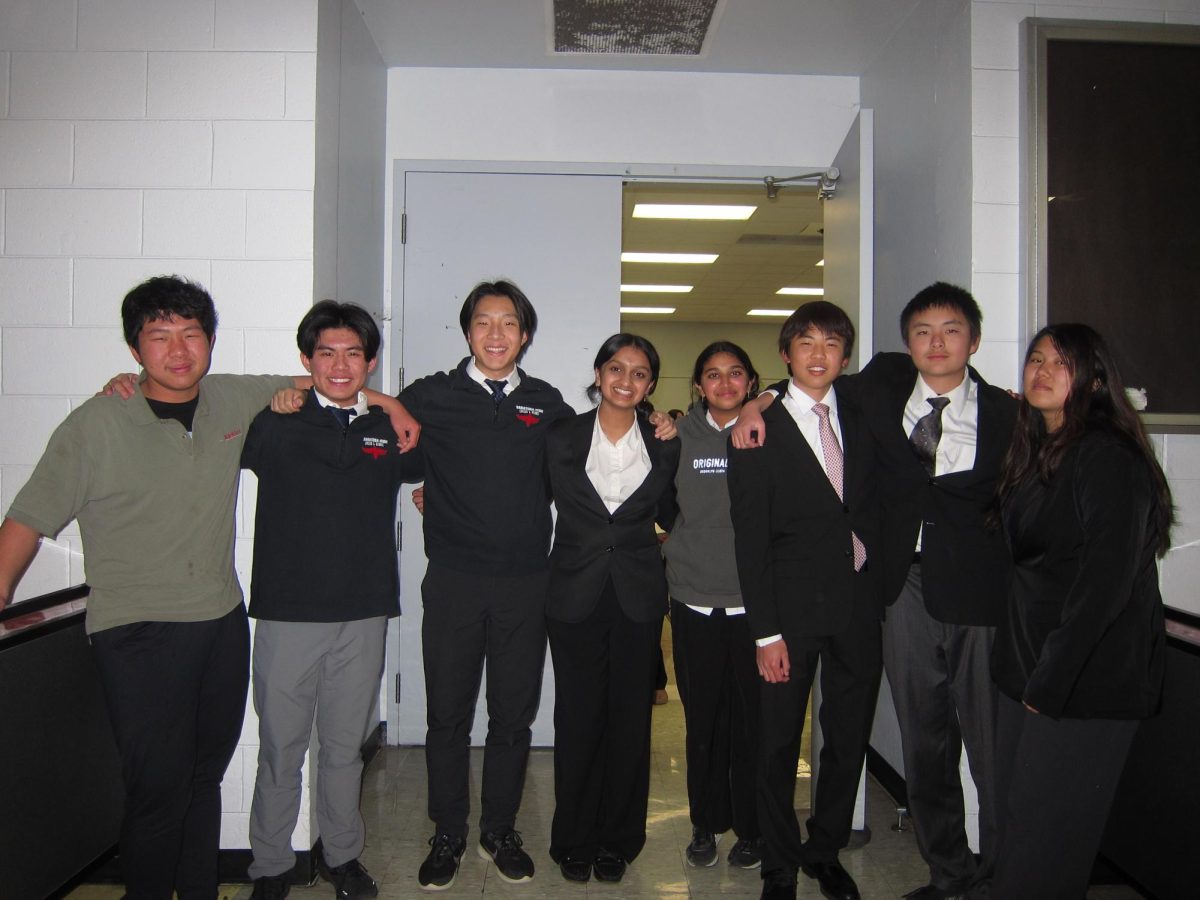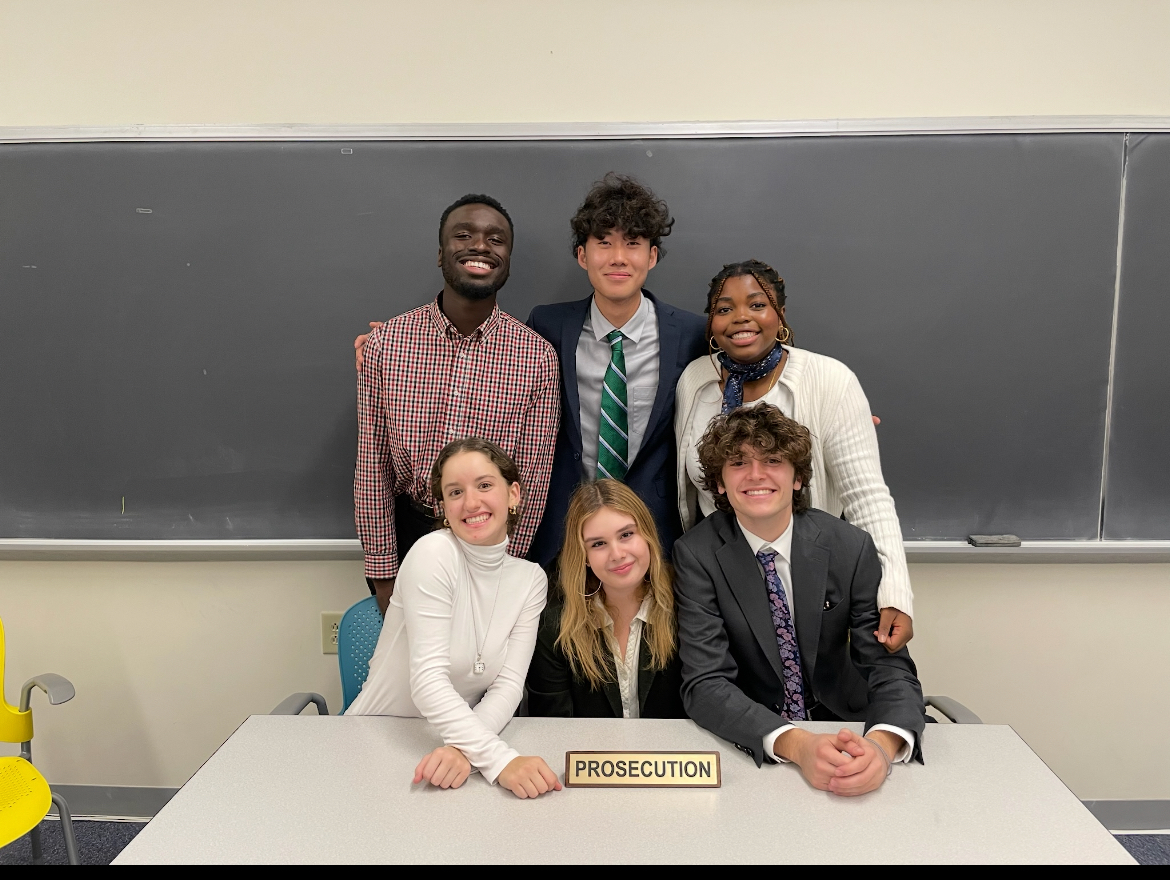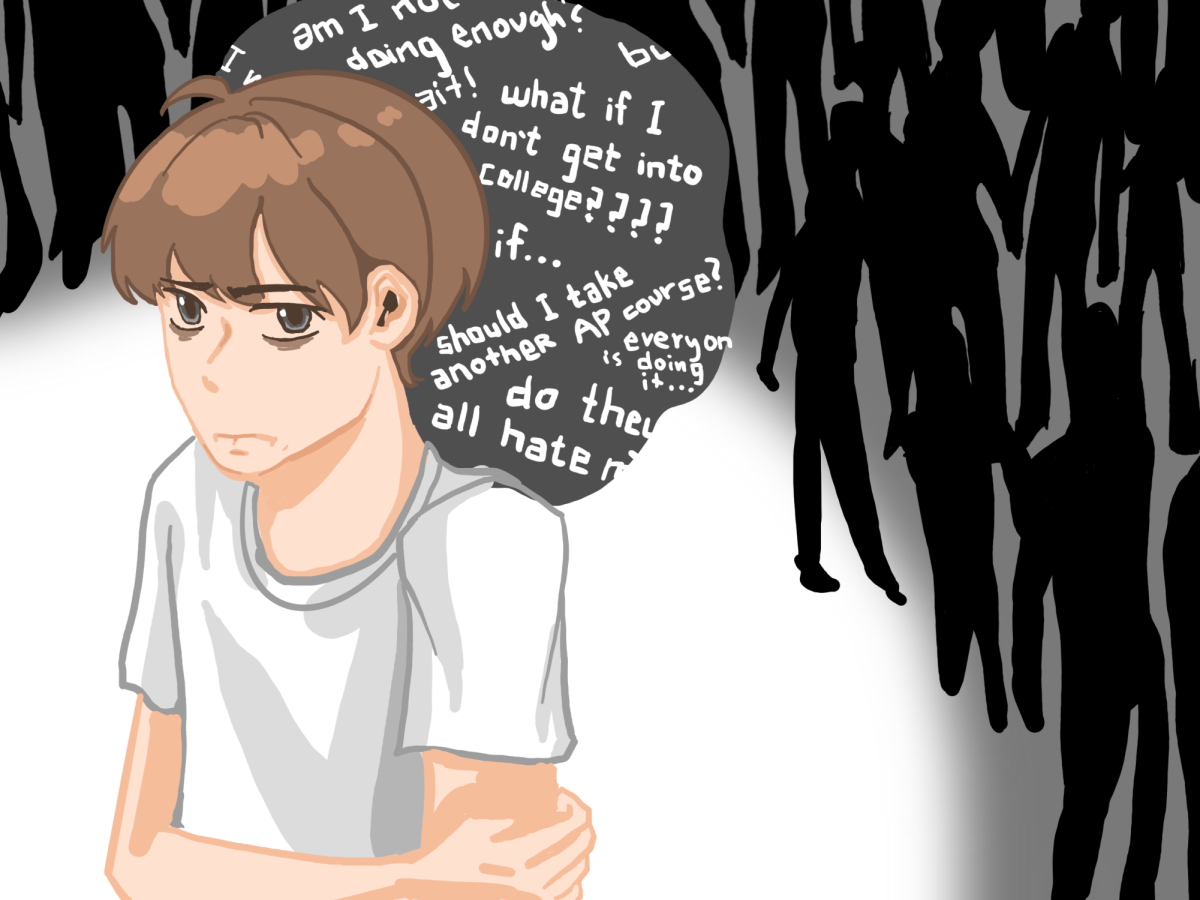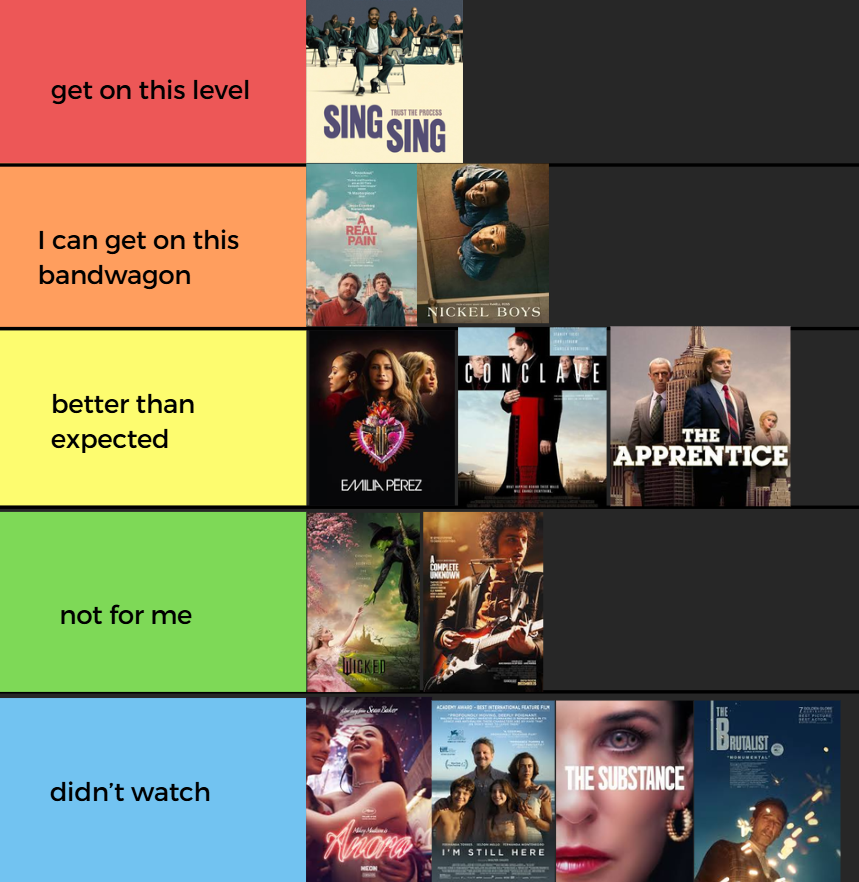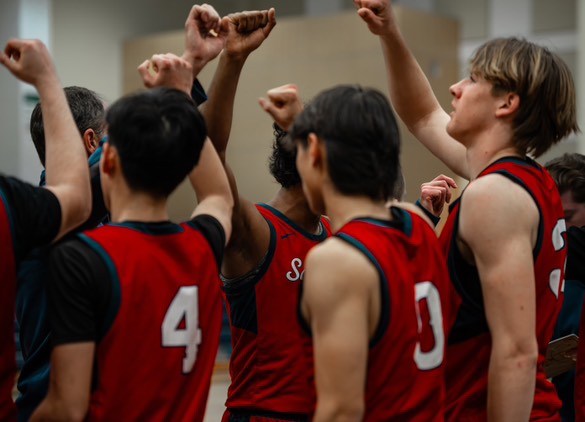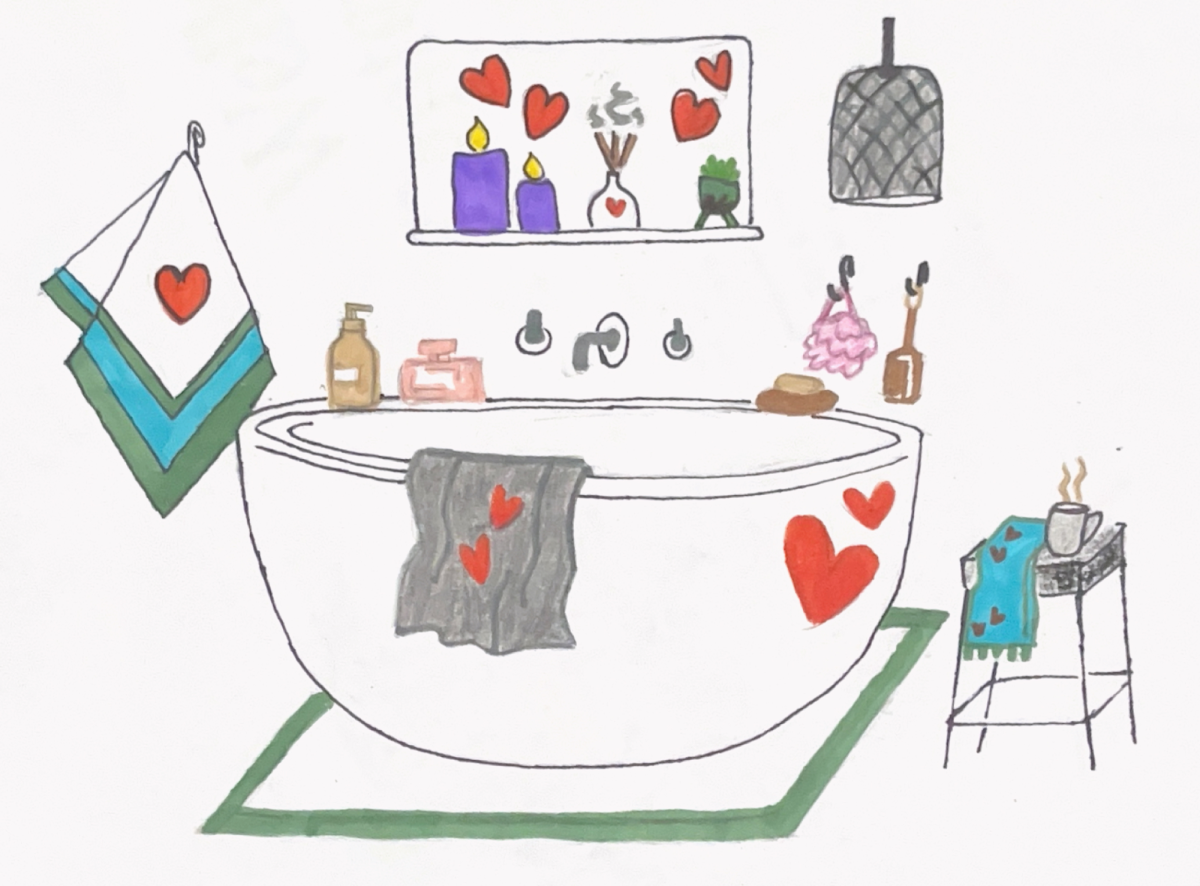There were only four days left until freedom, and current junior Annelise Nussbacher was just six tests away from the end of her sophomore year. As she crammed for her World History final the coming Monday, she heard the door to her room open.
Her parents appeared.
Shaking, they told Annelise that her 30-year-old half-sister, Sara Nussbacher, had committed suicide.
The blow hit hard. In a world of grief, she struggled to stay afloat during finals week. In the coming months, Annelise immersed herself into her passion — the arts — in an attempt to cope.
“The biggest cathartic thing that happened to me was going to an art insitute [over the summer],” she said. “I just got to lose myself in art. It was a wonderful distraction.”
A troubled relationship
Sara, Annelise’s half-sister, had always struggled with psychological disorders. She grew up battling borderline personality disorder and a strong case of anorexia.
Sara grew up with father Ken Nussbacher until 1985, when Ken remarried with Loretta Nussbacher. After, they had three children together — Julia, Alex, and Annelise.
When Annelise was a toddler, Sara was extremely close with the family. However, due to the 14-year age gap between Annelise and Sara, Annelise cannot remember many memories from these happy times.
As time progressed, Sara got into trouble.
“When she was [a teenager] she got mixed up in a bad scene of drugs and alcohol and rowdy boyfriends that she’d run away with,” Annelise said. “You try all these different tactics to try and help her: first comfort, rehab, then last, you try if the others don’t work, is cutting them off.”
Before Annelise reached third grade, Sara had already been “excommunicated” from the family; the pair did not meet again until Annelise was 8, the first time Annelise clearly remembers meeting Sara.
“I remember my parents taking me into my room when I was 8 and saying that ‘your sister’s coming to visit’ and they told me about her and some of the taboo things that I was too young to know,” Annelise said.
Although aware of Sara’s situation with the rest of the family, Annelise was still too young to understand the gravity of the information.
“[It wasn’t until] I started to get older and be seen as less of a kid that I got more firsthand experience as to what she was like when she would have bad [mood] swings,” Annelise said.
The first unfiltered encounter
Annelise didn’t get to see the darker side of her half sister until the family traveled to New York City during Christmas of 2011, for Sara’s graduation from college.
Annelise and Sara had planned to eat dinner together and then watch a show on Broadway. It was the first time the two truly spent time together alone.
They ate happily, until suddenly an unwarranted mood swing seized Sara.
“She’d go through all these fluctuations of rage and aggression where she’d curse me out and yell and scream at me, and the next minute she was crying and sobbing about how I didn’t know how good I had it and to forgive her,” Annelise said. “She’d just go through the most insane swings of every personality you could think of.”
Terrified and confused, Annelise could only stand and watch as her sister went through these changes in behavior.
“I was a 14-year-old kid in New York City, a place that I didn’t know that well, taking care of my 28-year-old sister who was going through these fits and it was a frightening and a bizarre experience,” she said.
That night, when they returned to the hotel, Annelise kept the incident a secret until after the family left New York, not wanting to damper the joyous event of Sara’s graduation.
“My parents kind of freaked out after what happened with Sara because I wasn’t supposed to be alone with her,” Annelise said.
After the unforeseen encounter, Annelise left New York angry at Sara.
“I got mad at her after what happened in New York because a lot of it was unmerited and out of nowhere,” she said. “I had never seen her like that before, when I wasn’t just a kid that she needed to be careful to be around … I was just like a 20-[year-old] who was on level with her and she didn’t have to worry about what she said or did.”
Later, however, Annelise understood that most of what had happened had taken place inside Sara’s head and was out of Sara’s control.
Sara’s graduation was also the last time Annelise saw Sara alive.
“It was a really really horrible experience that I actually didn’t regret,” Annelise said. “The experience allowed me to better understand Sara and how her relationship with the family came to be the way it was.”
After the incident in New York, the family limited contact with Sara. Both Annelise and her sister Julia tried to keep in touch with Sara through emails and phone calls, but most of their messages went unanswered.
However, despite the rare contact, the girls were led to think Sara’s life was headed in the right direction.
“It seemed like she was getting better,” Annelise said. “She was in New York, the city she had always wanted to be in, she wanted to work in communications, we paid for her apartment, she was looking for a jobs, and it seemed like she was on her way to pursuing what we hoped would make her happy.”
The unexpected tragedy
This sparse contact with Sara continued for two years, until, the day before finals week started, Annelise and her family were notified of Sara’s suicide. Sara was found alone by her apartment manager.
Shocked and distraught, the family tried to find solace in each other.
“My father made it clear that the thing that would console him the most would be if he thought that the trauma of hearing about [Sara’s death] wouldn’t hinder my abilities to take my finals,” she said. “[He hoped] that [the news] wouldn’t leave me catatonic on a couch somewhere.”
Determined to make sure her father would not have to worry about her grades, Annelise returned back to her books. Studying then became almost therapeutic.
“In some ways studying for finals that day became a way to avoid thinking about it it because then I could just focus on the textbooks and then it was like [nothing] happened,” Annelise said.
As if Annelise’s predicament that Sunday afternoon wasn’t tough enough, waking up on Monday morning was even more daunting.
“Getting up in the morning was exceptionally painful,” she said. “l remember just lying in my bed thinking ‘did yesterday just really happen?’”
But it had happened. And there was nothing she could do but “suck it up” and get out of bed, thinking that she had to give her parents “one less thing to worry about.”
Finals week
The next four days were some of the most difficult in her life.
First of all, Annelise had made the decision to not tell any of her teachers about the event. She knew she didn’t want any “special treatment,” and all she wanted was to “get finals week over with.”
Annelise’s first final was an English in-class essay.
“I remember walking into class — I was barely holding in all in my sanity, barely holding back tears.”
She sat down, ready to write the essay. However, when Annelise received the prompt, she had to force herself to calm down; the prompt was on family relationship ties.
“Ninety five percent of me wanted to just run and run away non stop,” she said. “[But] I took a couple of deep breaths, and I wrote my essay.”
Barely avoiding a breakdown, Annelise commended herself for not crying in class. But her resolution broke when the bell signaled the end of first period.
“As soon as the bell rang, I booked it to the girls’ bathroom in the 600 wing, and cried the entire 20-minute break.”
Walking the hallways today
The climb up from grief was no walk in the park. For Annelise, the experience gave her a new perspective on life.
“It’s a mind trip to step outside, and you're surrounded by people talking about ‘oh what’d you get for this answer’ and all of a sudden, it just seems so trivial,” Annelise said. “It just seems meaningless because you’re just sitting there thinking ‘a person that I grew up with is dead and the people next to me are thinking their lives are over because they think they got one question wrong on a sophomore year final.’”
Even more influential was Annelise’s newfound appreciation for family and friends.
“I constantly hear people say, ‘oh my brother just did the most annoying thing to me, I wish they would just go away,’” Annelise said. “The biggest thing I could tell absolutely everyone is to learn to forgive.”
According to Annelise, forgiving and moving on is much more worth it than holding in the hatred.
“Everyone gets stressed and everyone makes mistakes and does something stupid that they may regret, and if you hold onto that, it won’t just destroy your relationship, but holding onto hatred will destroy you,” she said.
To deal with her grief, Annelise immersed herself in activities that consumed all her concentration. Distraction in the beginning came in the form of studying for finals. After summer started, art was her savior; Annelise was accepted to an art program at Boston University that she had applied to months earlier.
“I spent a month in Boston away from my family, away from things that were familiar,” Annelise said.
Her final project involved a study in fabric. The students were instructed to do a painting centered around a set of clothes.
“I laid out, hung up and painted around the clothes I wore to [Sara’s] funeral and painted them,” she said. “I cried the majority of the time I painted that.”
Although over the grief now, Annelise carries around the memories and experience with her every day.
“The locket that I wear every day has [Sara’s] picture in it, just as a small reminder so that [Sara] is not forgotten,” Annelise said.


